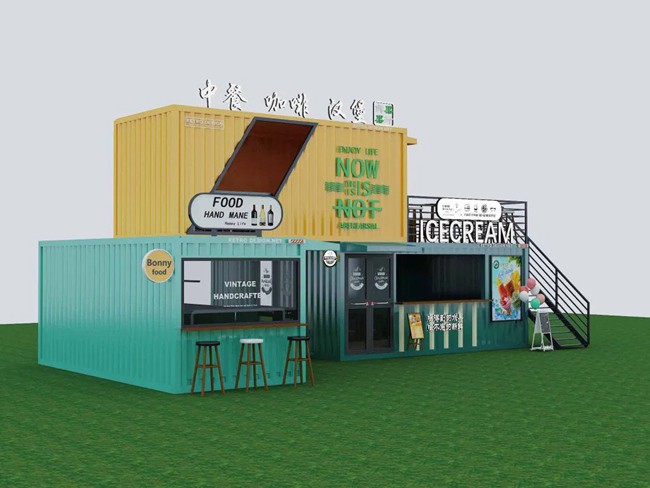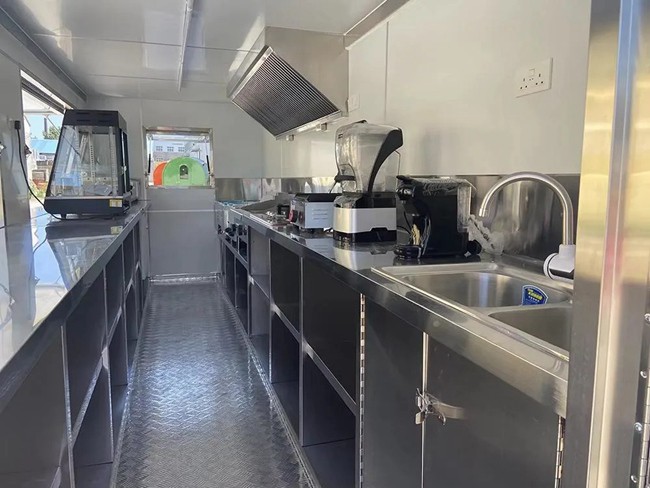Welcome!







High Quality Wedding Outdoor Aluminum Stage Event Aluminum Stage Platform Aluminum Stage
Product Description
Outdoor stages and their scenery are mostly temporarily built, with a single function, and can be dismantled immediately after use. This feature requires consideration of convenience and disassembly during design and construction. Although outdoor stages save on venue construction or rental costs, stage construction itself becomes the main expense. In terms of economic investment, it is necessary to weigh the cost-effectiveness of single use. Although it is a temporary setup, the outdoor stage needs to cover all functions such as lighting, sound, scenery, makeup, etc. to ensure the smooth progress of the performance or event.

Application scenarios of aluminum stage
Concerts, concerts, and other cultural performances.
Celebrations, weddings, and other festive occasions.
Commercial activities such as exhibitions and conferences.
Performance activities in educational institutions such as schools and kindergartens.

Aluminum alloy stages can be customized according to different stage requirements, such as assembled and folded types, to meet the performance needs of different occasions. In addition, it can also arrange stage lighting and set up stage backgrounds according to the needs of the performance, creating a better stage effect. Pay attention to checking the materials, craftsmanship, and details of the stage. Ensure convenient and efficient transportation and installation of the stage, reducing unnecessary troubles and costs.
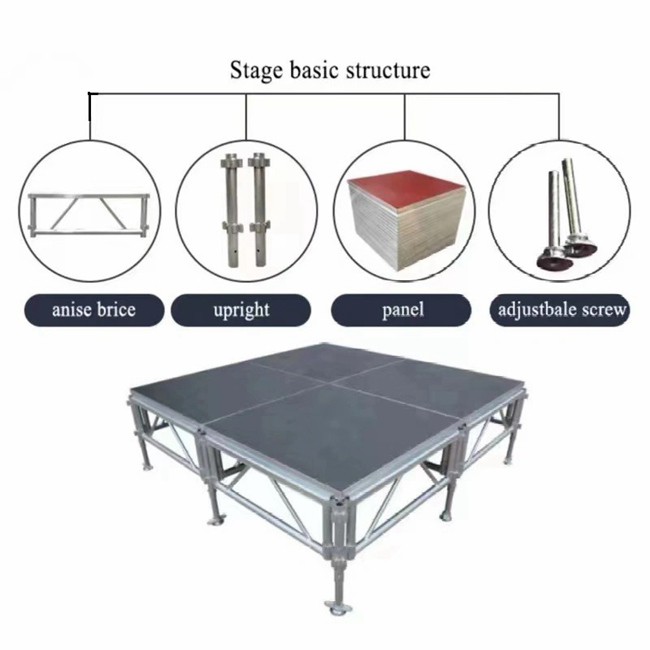
Compared to traditional stage materials such as wood or steel, aluminum alloy stages are lighter, easier to transport, build, and dismantle, reducing the labor intensity of workers. The aluminum alloy stage has a beautiful appearance and smooth lines, which can not only meet the basic needs of stage construction, but also enhance the overall visual effect of the stage and increase the viewing value of cultural activities. Aluminum alloy stages are easy to clean and maintain, and their materials are not prone to rust and corrosion, reducing maintenance costs. At the same time, there is less noise and dust generated during the construction and dismantling process, which is in line with the concept of sustainable development.

Post inspection and maintenance
Comprehensive inspection: After the stage construction is completed, a comprehensive inspection and testing should be conducted, including the stability, safety, lighting, and sound equipment operation status of the stage.
Regular maintenance: During the use of the stage, regular maintenance and upkeep should be carried out, including checking the structure and equipment of the stage for completeness, repairing or replacing damaged components, etc.
Safety training: Provide safety training to staff to ensure they understand the safety operating procedures and emergency response measures for the stage.
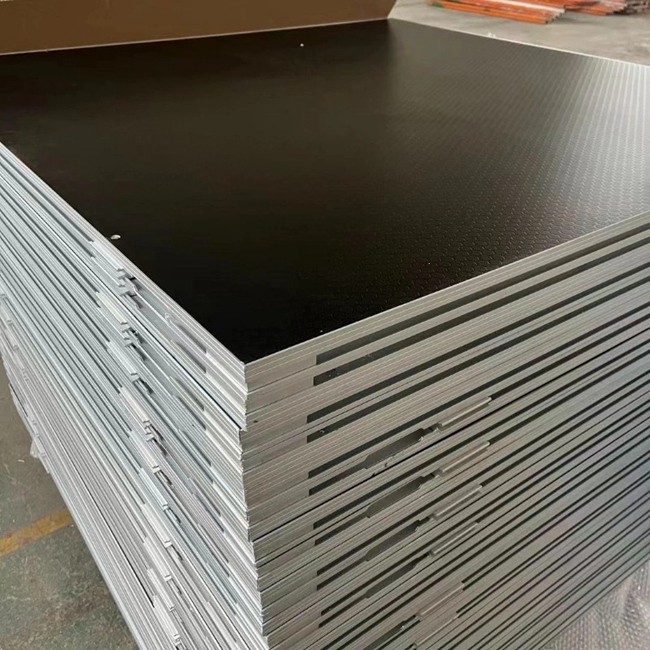
Recommended Products
Recently Viewed
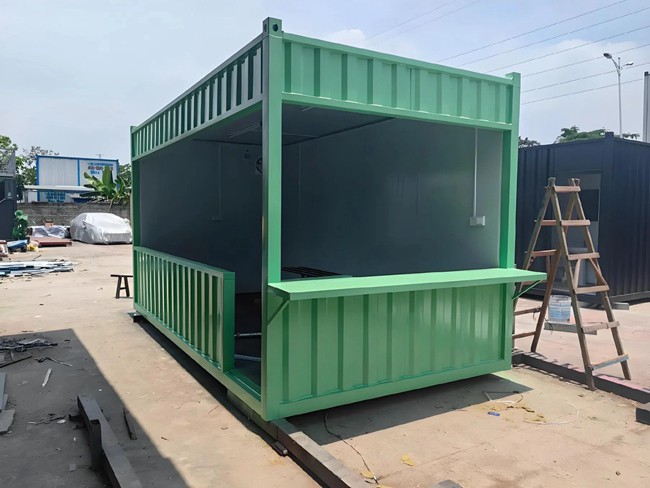 Prefab Luxury Mobile Folding House Prefabricated Home Storage Kiosk Booths
Prefab Luxury Mobile Folding House Prefabricated Home Storage Kiosk Booths Factory Price Mobile Prefab Sentry Box/Shop/Kiosk/Ticket Booth
Factory Price Mobile Prefab Sentry Box/Shop/Kiosk/Ticket Booth Factory Price Container House Fast Food Kiosk Container Booth and Shop
Factory Price Container House Fast Food Kiosk Container Booth and Shop High Quality Mobile Prefab Sentry Box/Shop/Kiosk/Ticket Booth
High Quality Mobile Prefab Sentry Box/Shop/Kiosk/Ticket Booth Factory Price Easy Assembly Sandwich Panel Portable Security Booth
Factory Price Easy Assembly Sandwich Panel Portable Security Booth
Contact Us
Suzhou Liansheng Aluminum Industry Co., Ltd.

